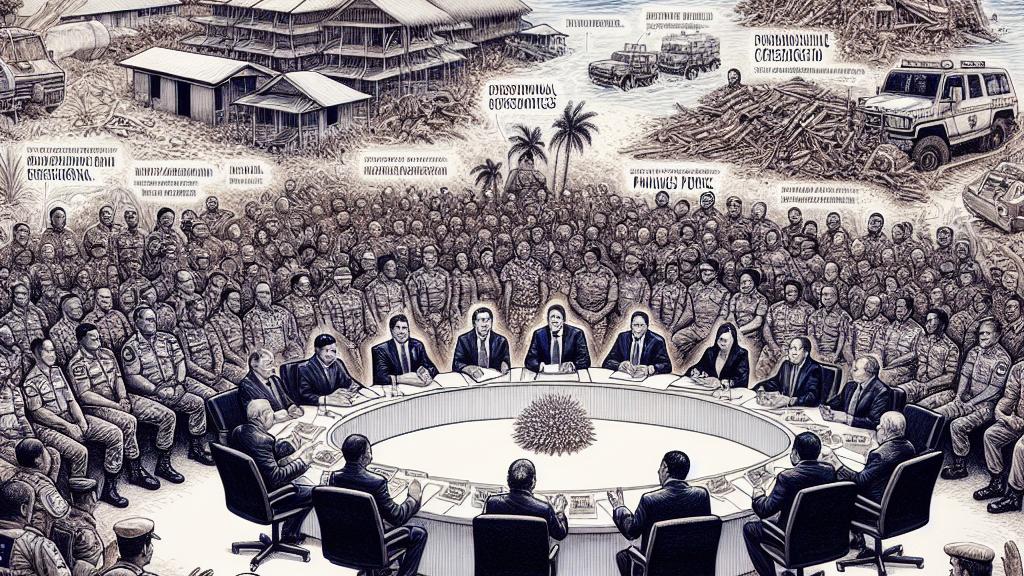Pacific Policing Pact: A Strategic Move Against China?
Overview
- Pacific Islands leaders endorse an innovative policing initiative for regional security.
- The initiative is backed by $271 million of Australian funding to tackle crime and enhance policing.
- Aimed at countering China's growing influence, fostering collaboration, and ensuring local autonomy.

Inception of a Transformative Initiative
On August 28, 2024, an assembly of leaders from Pacific Island nations took place in Nuku’alofa, Tonga, where they collectively endorsed a groundbreaking regional policing initiative. This ambitious plan, supported by an initial investment of $271 million from Australia, aims to establish up to four police training centers across the Pacific region and create a robust multinational crisis reaction force. This force, comprising around 200 police officers from the participating nations, will be equipped to respond to various emergencies, including organized crime, natural disasters, and security crises. The initiative marks a significant opportunity for these island nations to harness their combined resources to tackle local and regional security challenges, elevating the Pacific’s capacity for self-governance and law enforcement.
Geopolitical Dynamics and Strategic Significance
The endorsement of this policing pact is not just about law enforcement; it represents a strategic decision amid a complex geopolitical environment where Australia and its allies are increasingly concerned about China's influence in the Pacific. The gathering in Tonga underscored a commitment to regional solidarity, with leaders from Fiji, Papua New Guinea, and Palau expressing their eagerness to enhance their security operations. Tongan Prime Minister Siaosi Sovaleni highlighted that the initiative is essential for dealing with transnational issues like organized crime, indicating awareness of the multifaceted threats the region faces. Australia's Prime Minister Anthony Albanese's assurance of support reflects a broader strategy to empower Pacific nations to independently secure their interests, promoting a balance of power that counters the growing Chinese footprint in the Pacific.
Future Prospects and Regional Cooperation
While the policing initiative has garnered praise for its forward-thinking approach, responses from countries with ties to China reveal underlying tensions. Beijing's reactions suggest discomfort, as the initiative appears to limit its involvement in Pacific security matters, which have seen China establish relationships with nations like the Solomon Islands. Leaders from Vanuatu and the Solomon Islands, in particular, have expressed reservations about potential isolation from critical partnerships. This will require Pacific nations to carefully navigate their diplomatic relations, asserting their security needs while fostering constructive dialogue. The roadmap for the future of the Pacific policing pact will depend on the ability of these nations to unite against common challenges while successfully managing their complex relationships with global powers, ensuring that they can maintain autonomy and self-determination in the pursuit of regional stability.

Loading...